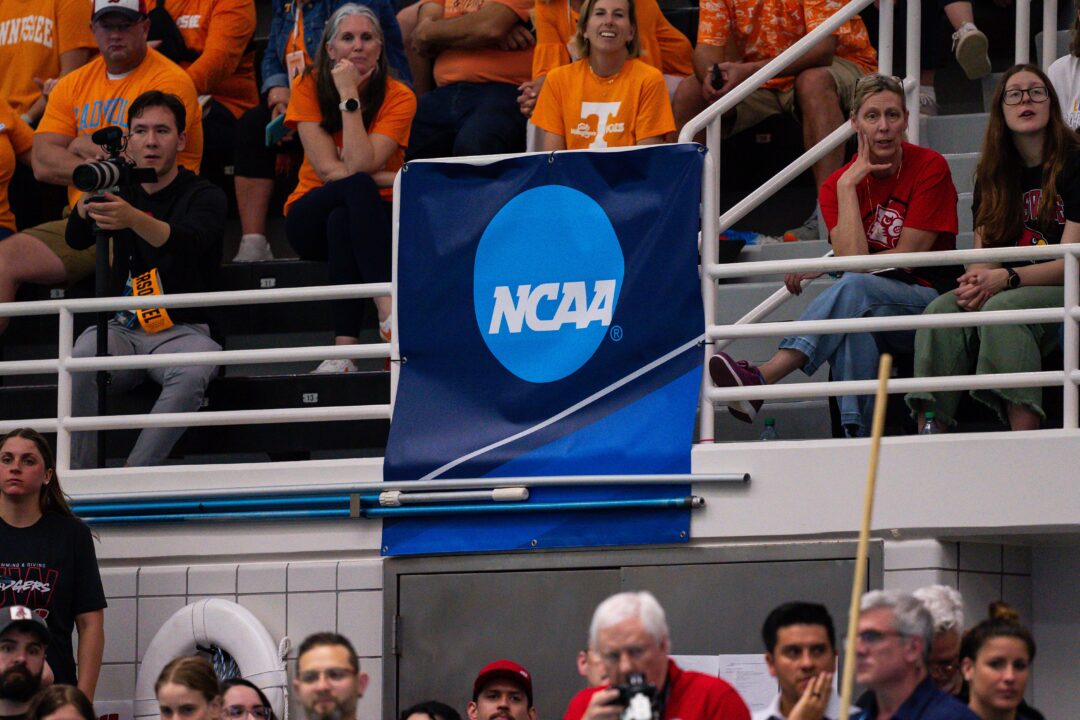A new transfer rule in the NCAA will allow undergraduate student-athletes to compete immediately for their new school if they meet specific academic requirements, regardless of how many times they’ve changed schools previously.
The NCAA Division I Council unanimously approved the legislation on Wednesday, though the decision won’t be final until the end of meetings on Thursday and the rule still needs to be ratified by the D1 Board of Directors on Monday (though that’s expected to be a formality).
Once it goes through, the rule will provide immediate eligibility to any athletes who transferred during the 2023-24 academic year, provided they are academically eligible and meet progress-towards-degree requirements at their new school.
There will be no limit on the number of times an athlete can transfer, but they can’t transfer mid-season and compete for a second school in the same campaign. The two transfer portal windows will also remain in place.
“With these rule changes, NCAA members continue to prioritize long-term academic success for college athletes who transfer, while supporting their opportunity to compete immediately,” said Lynda Tealer, the NCAA Division I Council Chair and the deputy athletics director at Florida.
“We hope that this practical approach to transfer eligibility requirements will encourage student-athletes to make well-informed decisions about transferring and the impacts such a move could have on their ability to graduate on time in their degree of choice, particularly as it relates to transferable credits.”
Graduate transfers will be immediately eligible provided they’ve earned a degree from their previous school, left while academically eligible, and then enrolled as a full-time post-grad student. They can enter the portal at any time but need to be in it by the end of their sport-specific window.
2023-24 NCAA Transfer Portal Windows
- Women’s Swimming & Diving Window – March 13, 2024 – April 26, 2024
- Men’s Swimming & Diving Window – March 20, 2024 – May 3, 2024
The previous rules allowed student-athletes to be immediately eligible after their first transfer, but forced them to sit out for one season after each subsequent transfer.
The one-time transfer rule came into effect in the 2020-21 season, around the same time that the name, image and likeness (NIL) rules were revamped, bringing some to compare college athletics to a form of free agency in professional sports.
The new changes come after a court injunction in December allowed players who transferred multiple times to return to competition after previously being barred from doing so by the NCAA.
Shortly thereafter, the NCAA agreed to terms on a preliminary injunction that runs through the end of the 2023-24 academic year, and in January, the U.S. Department of Justice joined the lawsuit against the NCAA’s transfer rules, arguing they violated antitrust law.

I’m just curious, what’s the reason for having the women’s and men’s window be shifted away from each other by a week?
The D1 Men’s meet is a week after the D1 Women’s meet.
The bigger news is the commonwealth of Virginia passing a new law that universities can pay their athletes NIL directly. Don’t get comfortable, folks! College sports are about to take a ride. For women, Title IX may add the ability to make some money swimming in college. I also foresee the scholoarship caps rising to a more realistic level, or going away entirely. And the rich programs will end up hoarding much of the talent.
Bob Bowman strikes again. He’s gonna recruit hard at Texas.
Santo Condorelli born a decade too soon
Lol NCAA scared.
At this point the recruiting game has changes so much that I’m not sure why programs are wasting their time recruiting 50 high school kids to just get lucky and find one good one every few years. If I’m a coach at a school like Purdue, Northwestern, or North Carolina I would just save all my scholarships for transfer students. All you have to do is make it know that you get a full ride and a degree from one of the best schools in the country if you transfer in at a level where you can score top-8 at NCAAs. 4-6 swimmers at that level will just about guarantee a top-10 team finish every single season.
Especially for guys. So few of them enter college with major scoring times.
Because transfer scholarships are fully guaranteed. Once the transfer is signed, even if they quit the team before ever practicing the school is paying out that scholarship and carrying against their total through graduation or the end of eligibility. Way more risk involved. There’s also a much larger window to get to know a recruit you’re bringing in as an incoming freshmen, happens on a very different timetable for most transfers and that is scary for some coaches as well.
Guess what college coaches? Welcome to the plight of USA Swimming clubs.
Unlimited transfers can actually be a healthy thing. Who wants any disgruntled athletes in the pool?
The problem though, won’t be the athletes. Like USA Swimming, the problem will be the coaches …. precisely zero will exercise any discernment about which transfers they will accept. If they’re fast, they will take them, probably with little or no research into the athlete’s history at their prior team. “Get the athlete, no matter what”
Because coaches don’t do this anyway?
We don’t want to forget what OXYSWIM posted in this same article – https://swimswam.com/ncaa-approves-new-unlimited-transfer-rule-allowing-immediate-eligibility/#comment-1351808
That Bowman cash works wonders